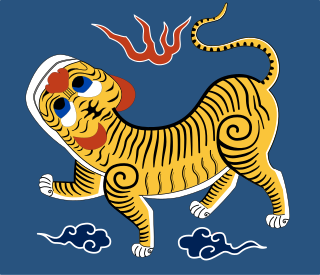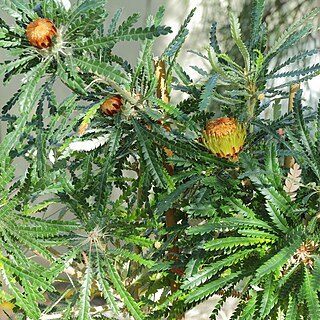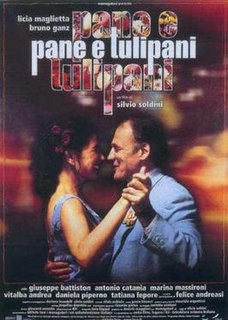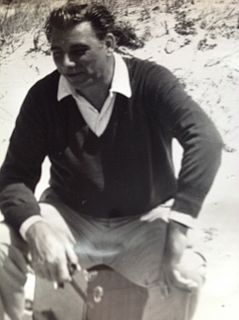
Formosa Province is a province in northeastern Argentina, part of the Gran Chaco Region. Formosa's northeast end touches Asunción, Paraguay, and the province borders the provinces of Chaco and Salta to its south and west, respectively. The capital is Formosa.

Formosa is the capital city of the Argentine province of Formosa, on the banks of the Paraguay River, opposite the Paraguayan city of Alberdi, about 1,200 km (746 mi) north from Buenos Aires, on National Route 11. The city has a population of about 234,000 per the 2010 census [INDEC].

The Republic of Formosa was a short-lived republic that existed on the island of Taiwan in 1895 between the formal cession of Taiwan by the Qing dynasty of China to the Empire of Japan by the Treaty of Shimonoseki and its being taken over by Japanese troops. The Republic was proclaimed on 23 May 1895 and extinguished on 21 October, when the Republican capital Tainan was taken over by the Japanese. Though sometimes claimed as the first Asian republic to have been proclaimed, it was predated by the Lanfang Republic in Borneo, established in 1777, as well as by the Republic of Ezo in Japan, established in 1869.

Rosalba Carriera was a Venetian Rococo painter. In her younger years, she specialized in portrait miniatures. It is for this that she was able to build a career in portraiture. Carriera would later become known for her pastel work, a medium appealing to Rococo styles for its soft edges and flattering surfaces. She is remembered as one of the most successful women artists of any era.

Rosalba Neri is a retired Italian actress.

The Italy men's national volleyball team represents the country in international competitions and friendly matches. It dominated international volleyball competitions in the 1990s and early 2000s, by winning three World Championships in a row, seven European Championships, one World Cup (1995) and eight World League.

Banksia formosa, commonly known as showy dryandra, is a species of shrub that is endemic to the south-west of Western Australia. It has pinnatipartite leaves with up to forty triangular lobes on each side, up to more than two hundred, conspicuous golden orange flowers and up to sixteen egg-shaped follicles in each head.

Lambertia formosa, commonly known as mountain devil, is a shrub of the family Proteaceae, endemic to New South Wales, Australia. First described in 1798 by English botanist James Edward Smith, it is the type species of the small genus Lambertia. It is generally found in heathland or open forest, growing in sandstone-based soils. It grows as a multistemmed shrub to around 2 m (7 ft) with a woody base known as a lignotuber, from which it regrows after bushfire. It has stiff narrow leaves, and the pink to red flowerheads, made up of seven individual tubular flowers, generally appear in spring and summer. It gains its common name from the horned woody follicles, which were used to make small devil-figures.

Bread and Tulips or Pane e tulipani is a 2000 romance comedy film directed by Italian Director Silvio Soldini. The movie stars Licia Maglietta and Bruno Ganz as Rosalba Barletta and Fernando Girasole. The film was an official selection at numerous film festivals, including the Cannes Film Festival and the Toronto International Film Festival.

Spanish Formosa was a small colony of the Spanish Empire established in the northern tip of the island known to Europeans at the time as Formosa from 1626 to 1642. It was ceded to the Dutch Republic during the Eighty Years' War.

The Pigeon That Took Rome is a 1962 American comedy war film directed and written by Melville Shavelson and starring Charlton Heston. The film is set in the Italian Campaign of World War II and was based on the 1961 novel The Easter Dinner by former spy Donald Downes.

Super Seven Calling Cairo is a 1965 Italian Eurospy film directed by Umberto Lenzi and filmed in Egypt. It is directly inspired by James Bond. It was based on a novel written by Umberto Lenzi. It starred Roger Browne and Massimo Serato, and a young Rosalba Neri.

Silvio Amadio was an Italian film director and screenwriter. He directed 24 films between 1957 and 1981. His film Wolves of the Deep was entered into the 9th Berlin International Film Festival. He is known to horror film fans for directing Amuck! (1972), a giallo film starring Rosalba Neri and Barbara Bouchet.

Rafaela is a Spanish-language Mexican telenovela produced by Nathalie Lartilleux for Televisa, and aired on Canal de las Estrellas from January 31, 2011 to July 15, 2011. It is based on the Venezuelan telenovela of the same name produced in 1977.

Rosalba Scotia Ciarlini Rosado is a medical doctor and Brazilian politician. Affiliated with the PP, she was the governor of the state of Rio Grande do Norte.

Formosa (1865–1881) was a British Thoroughbred racehorse that was the first winner of the English Fillies Triple Crown in addition to running a dead heat with the colt Moslem for the 2,000 Guineas Stakes. Formosa was bred by James Cookson and was foaled in 1865 at his Neasham Hall stud farm. Formosa was sold to William Graham in 1866 and raced her entire three-year racing career under his ownership. After her racing career ended in 1871, she became a broodmare for Graham until his death in 1876. Formosa was exported to France in 1879 and died there in February 1881. While she did not produce offspring that excelled at racing, her daughters that were exported to Germany and New Zealand did produce descendants that were successful racers.
Grevillea formosa, also known as the Mount Brockman grevillea, is a shrub which is endemic to the Northern Territory in Australia.
El honorable Señor Valdez, is a Mexican telenovela produced by Valentín Pimstein for Televisa in 1973. It was starring Ignacio López Tarso and María Elena Marqués.
Rosalba is a genus of beetles in the family Cerambycidae, containing the following species:
Extraordinary Women is Compton Mackenzie's twentieth novel. It is a satire set on the island of Sirene, a fictionalized version of the real island of Capri, and his second novel to be set in this location. The novel features many characters that are recognizable caricatures of lesbian women Mackenzie knew or knew of, including author Radclyffe Hall and artist Romaine Brookes. The novel features an ensemble cast of primarily female characters, many of whom are lesbians. The plot deals primarily with the romance between Rosalba Donsante and Rory Freemantle, although other minor characters play a role within the novel as a whole.















